- +86-19941574798
- sale06@kfqizhongji.com
Are Heavy-Load Poly-Coating Wheels Quiet on Hard Floors
Quiet operation concerns industrial or commercial operators when heavy-duty polymer-coated wheels are used on hard floors. Many industries require durable, high-capacity wheels.
When heavy-load poly-coating wheels are used on hard floors, quiet operation is a concern for industrial or commercial operators. Many industries require durable, high-load-bearing wheels, but they also need to remain quiet, especially in environments such as hospitals, warehouses, or office spaces. So, how do heavy-load poly-coating wheels perform in terms of noise reduction on hard floors? Let's explore the factors that affect their sound levels and compare them to other materials.
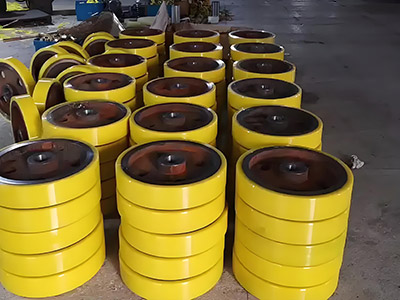
Why are polyurethane wheels quiet on hard floors?
Polyurethane wheels are recognized for their quiet performance on hard floors, offering a significant noise reduction compared to harder materials like metal or plastic. The flexibility and resilience of polyurethane allow it to absorb shock and vibrations, which helps to minimize the noise typically generated by rolling. Unlike metal wheels, which can create a loud clattering sound, polyurethane wheels provide a much softer, more controlled noise.
Noise-dampening properties of polyurethane
Polyurethane is inherently more cushioning than other materials, such as rubber or plastic. The vibration-dampening qualities of polyurethane reduce the harshness of the sound that’s often associated with rolling objects on hard, smooth surfaces. This makes polyurethane wheels an ideal choice for environments where noise control is essential, such as hospitals, libraries, and offices. Even when used on concrete, tile, or other hard surfaces, polyurethane wheels are relatively silent, creating a quieter rolling experience compared to other wheel types.
Factors affecting noise levels
• Wheel hardness and durometer rating
The hardness of a polyurethane wheel plays a significant role in its noise level. Softer polyurethane wheels (lower Shore A rating) tend to be quieter because they absorb more sound due to their flexibility. Harder wheels (higher Shore A rating), while more durable and capable of handling heavier loads, might produce slightly more noise due to reduced shock absorption. Therefore, selecting the correct durometer based on your needs can further optimize noise reduction.
• Load and weight
The weight being carried by the wheels can affect how much noise is produced. Heavier loads may lead to increased friction, which can result in more noise. However, even under substantial weight, polyurethane wheels still perform quietly than many other materials, such as metal or hard plastic.
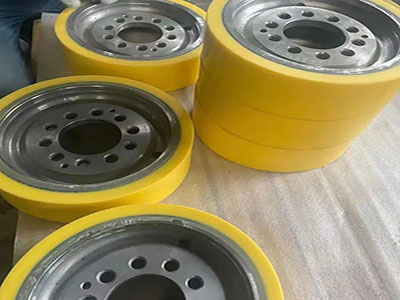
Polyurethane vs. rubber wheels: noise comparison
When comparing polyurethane wheels to rubber wheels, it’s important to note that both materials are generally quieter than metal or plastic wheels. However, rubber wheels tend to be slightly quieter than polyurethane wheels, thanks to the greater elasticity and softness of rubber, which further dampens noise. That said, polyurethane wheels have an advantage in terms of durability and load-bearing capacity, making them better suited for industrial or heavy-load applications where high weight and abrasion resistance are crucial.
Polyurethane wheels on different surfaces
On smooth, hard floors, polyurethane wheels maintain their quiet operation while still delivering smooth movement. However, on rougher or textured surfaces, such as gravel or asphalt, the noise levels may slightly increase, as the wheels experience more friction. Despite this, polyurethane wheels still provide a quieter performance compared to metal or plastic wheels.
Heavy-duty polyurethane wheels for quiet operations
Heavy-duty polyurethane wheels are an excellent choice for applications that require both strength and quiet operation on hard floors. Their ability to absorb shock, resist wear, and handle heavy loads makes them an ideal solution for many environments. Whether rolling equipment in a warehouse or transporting vehicles in a hospital, polyurethane wheels offer a quiet, smooth experience that enhances operational efficiency without the disruptive noise of other materials.


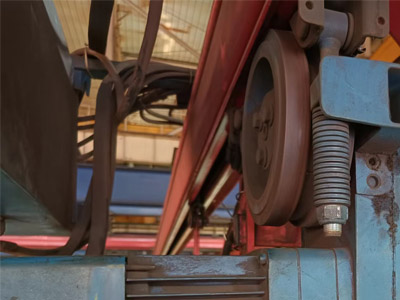
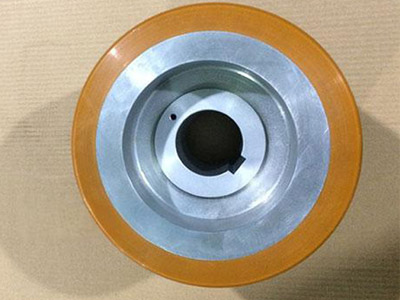
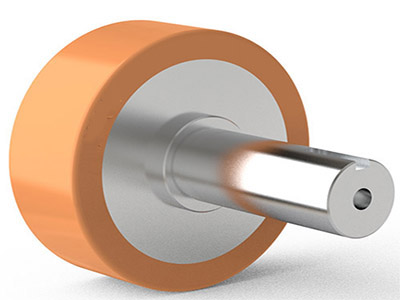
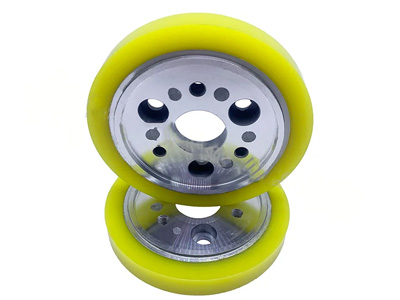
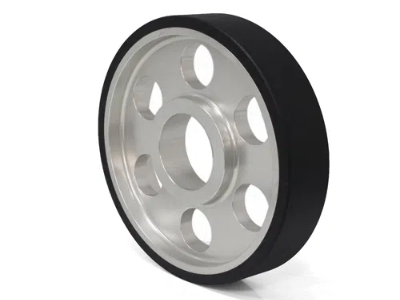
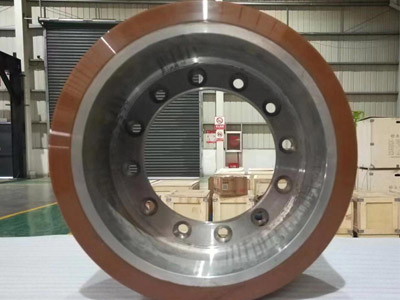
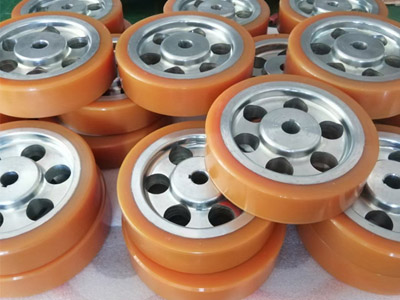
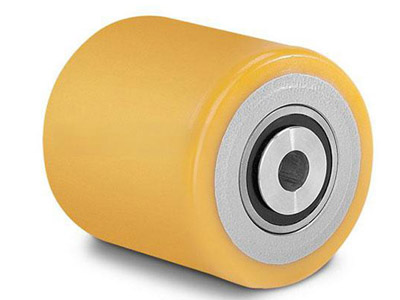

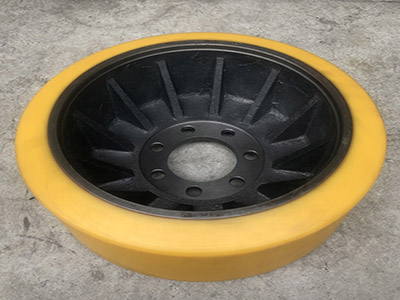
Polyurethane Wheels vs Rubber Wheels Pros and Cons
none